Summer Arts Preview: Visual Arts
By • May 16, 2019 0 1053
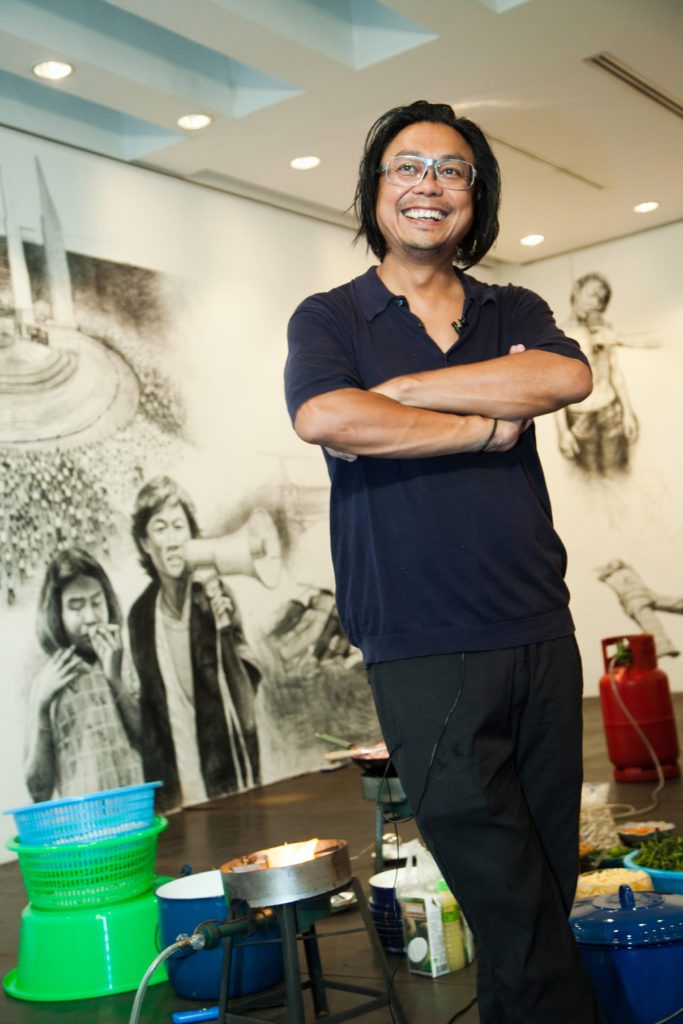
RIRKRIT TIRAVANIJA: (who’s afraid of red, yellow, and green)
HIRSHHORN MUSEUM
May 17 to July 24
This exhibition will transform the Hirshhorn’s galleries into a communal dining space in which visitors will be served curry and invited to share a meal together. Artist Rirkrit Tiravanija’s presentation unites his signature communal food-based work with his ongoing series of drawings derived from protest imagery, creating a unique dialogue within a single installation. The title refers to the colors worn by the various factions in recent Thai government protests. It also refers to the 1982 vandalism of Barnett Newman’s similarly titled painting in Berlin, motivated by the attacker’s belief that Newman’s painting was a “perversion” of the German flag.
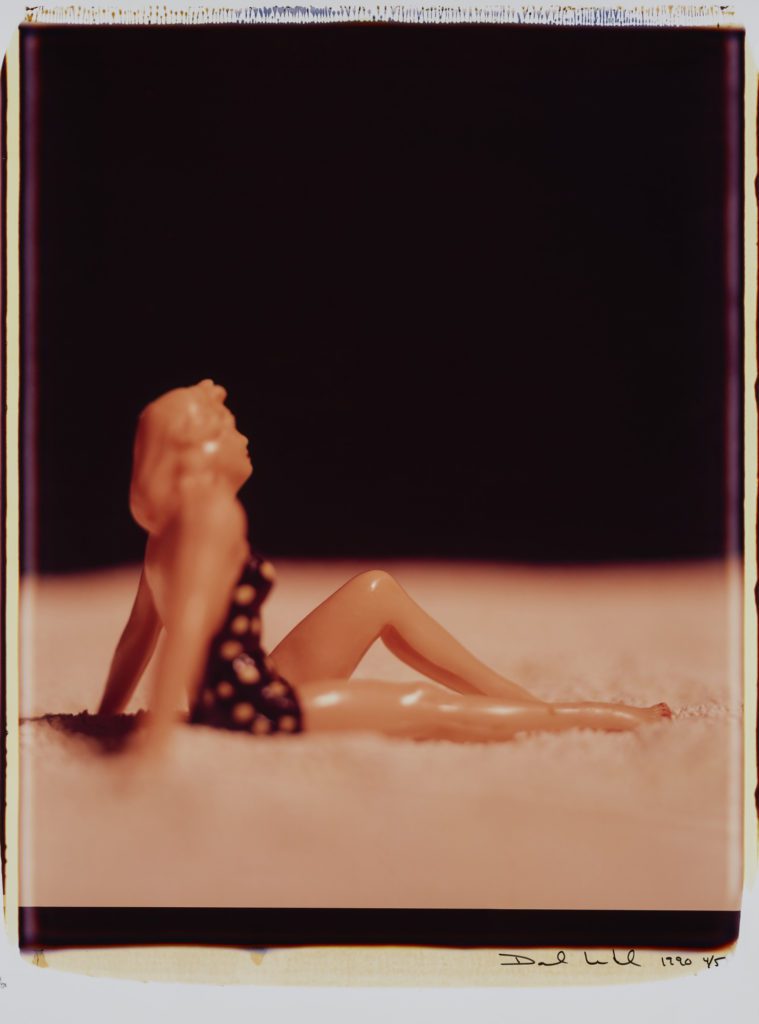
“Untitled,” from the series “American Beauties,” 1990. David Levinthal.
AMERICAN MYTH & MEMORY: DAVID LEVINTHAL PHOTOGRAPHS
SMITHSONIAN AMERICAN ART MUSEUM
June 7 to Oct. 14
Despite their playful veneer, photographer David Levinthal’s images provide a lens through which to examine the myths and stereotypes lurking within our most beloved pastimes and enduring heroes. Created between 1984 and 2018, the series “Modern Romance,” “American Beauties,” “Wild West,” “Barbie,” “Baseball” and “History” all explore quintessentially American themes and imagery. In his photographs, Levinthal encourages us to consider the stories we tell about ourselves — what it means to be strong, beautiful, masculine, feminine and, ultimately, American.
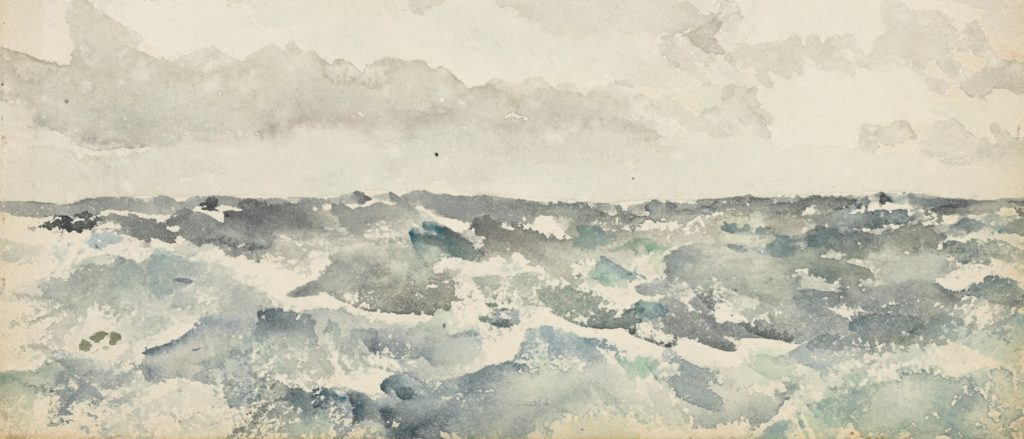
“Blue and Silver – Choppy Channel,” c. 1893-97. James McNeill Whistler.
WHISTLER IN WATERCOLOR
FREER GALLERY OF ART
May 18 to Oct. 6
Following the trial and the disastrous events surrounding the Peacock Room, James McNeill Whistler (1834–1903) was broke and in many ways defeated. Returning to watercolor, he reinvented himself in midlife and painted his way into posterity. Museum founder Charles Lang Freer amassed over 50 watercolors by Whistler, the largest collection in the world. Due to their delicate nature, these works have not been exhibited together in over a century. This exhibition opens in conjunction with a reinstallation of the Peacock Room, inspired by the room’s intended appearance as a dining room for its original owner in 1876.
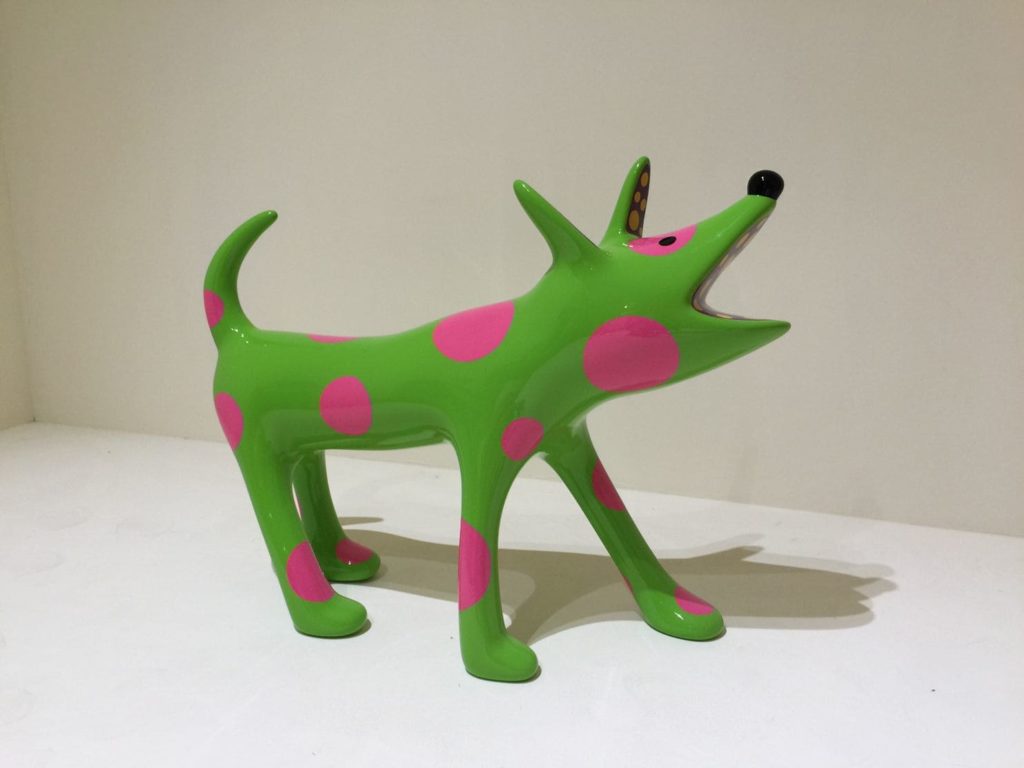
“Sho-chan, Heisei period,” 2013. Yayoi Kusama. Courtesy Ota Fine Arts.
THE LIFE OF ANIMALS IN JAPANESE ART
NATIONAL GALLERY OF ART
June 2 to Aug. 18
Artworks representing animals — real or imaginary, religious or secular — span the full breadth and splendor of Japanese artistic production. As the first exhibition devoted to the subject, “The Life of Animals in Japanese
Art” covers 16 centuries (from the sixth century to the present day) and a wide variety of media: sculptures, paintings, lacquerwork, ceramics, metalwork, textiles and woodblock prints. A selection of some 315 works, drawn from Japanese and American public and private collections, includes seven that are designated as Important Cultural Property by the Japanese government.
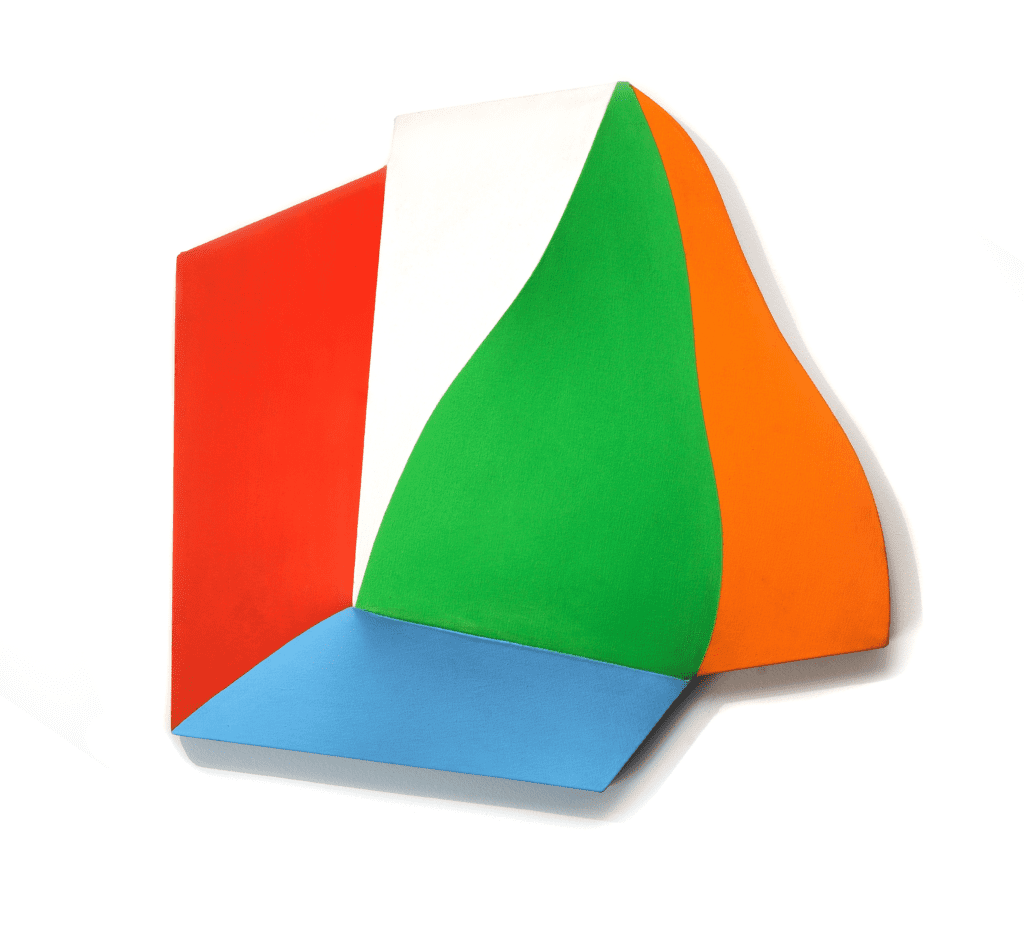
“Sails,” 1965. Charles Hinman.
CHARLES HINMAN: STRUCTURES, 1965–2014
THE KREEGER MUSEUM
Through July 31
This is the first museum show of works by Charles Hinman in the Washington area and the first survey in more than 30 years. A New York-based abstract painter who pioneered three-dimensional, shaped canvases starting in the 1960s, Hinman is best known for his compositions that emerge from the wall in a collection of hand-built and multicolored planes, expanding the conventional space of the canvas. The exhibition brings together historic paintings from the 1960s, also presenting objects that cast a new light on Hinman’s expansive and ongoing studio practice, including painted canvases, cast paper reliefs and other experimental artworks.
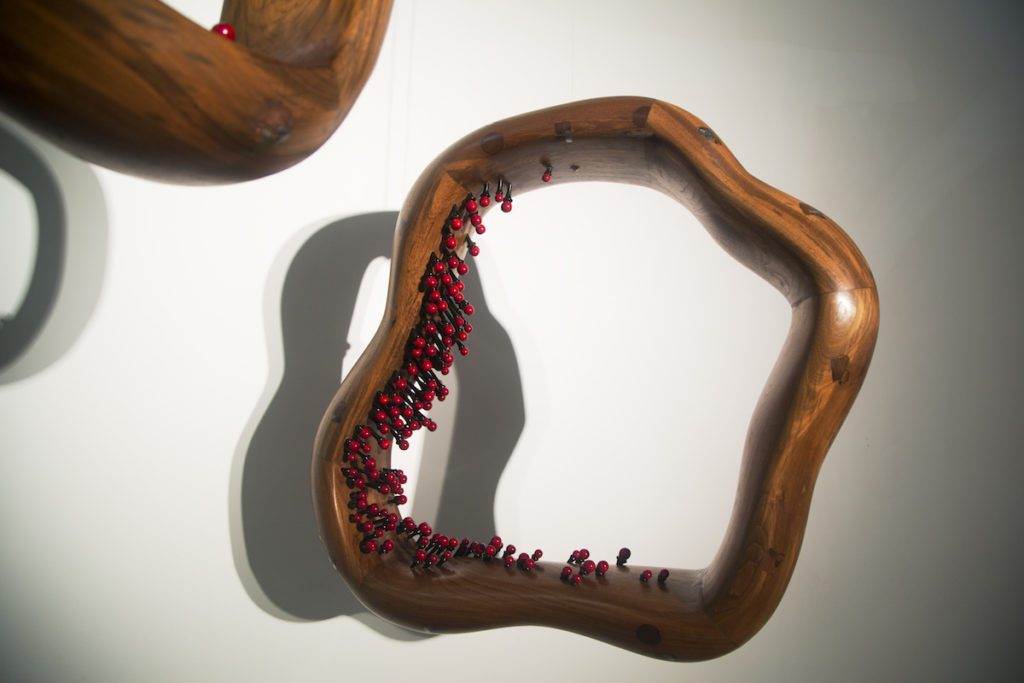
“Smoke Rings,” 2018. Ranjani Shettar. Courtesy the artist and Talwar Gallery.
EARTH SONGS FOR A NIGHT SKY
THE PHILLIPS COLLECTION
May 16 to Aug. 25
This multi-faceted project by Ranjani Shettar — born in 1977 in Bangalore — draws from the artist’s rural Indian environment of changing skies, monsoon rains and lush vegetation. Employing traditional materials such as teak wood and indigo pigment and techniques of carving, dyeing and lacquer, Shettar created hand-carved wood sculptures and a multi-part piece that wraps up the gallery walls. Occupying two rooms and the staircase of the original Phillips house, the project is conceived in dialogue with important artworks within the Phillips Collection: Wassily Kandinsky’s “Klänge (Sounds),” an artist’s book of 56 woodcuts, and three late paintings by Paul Klee.

